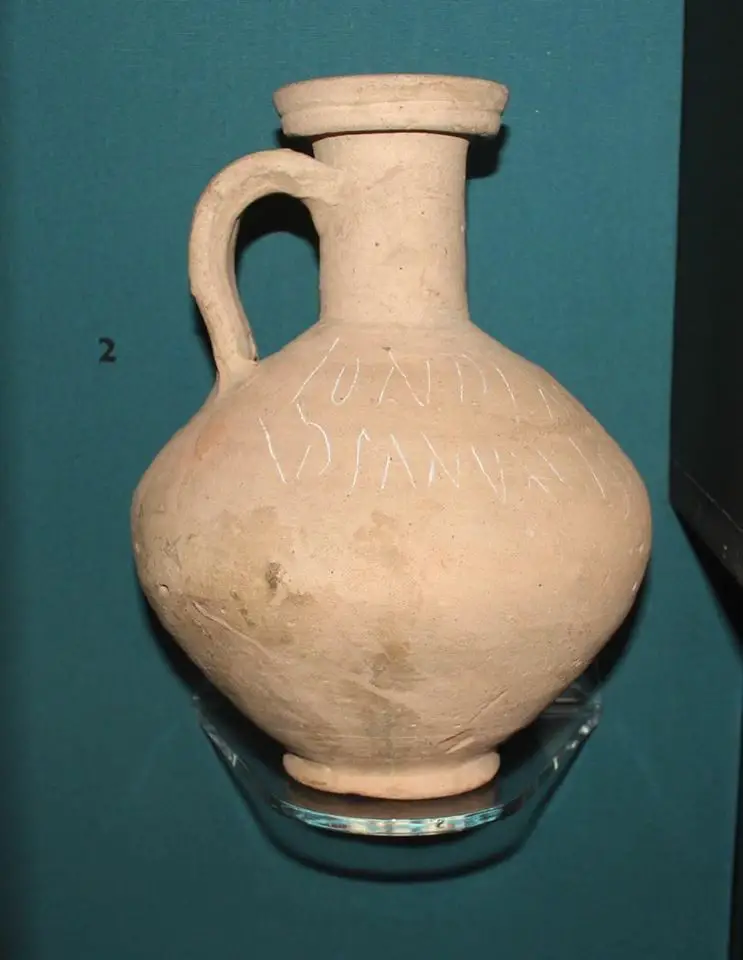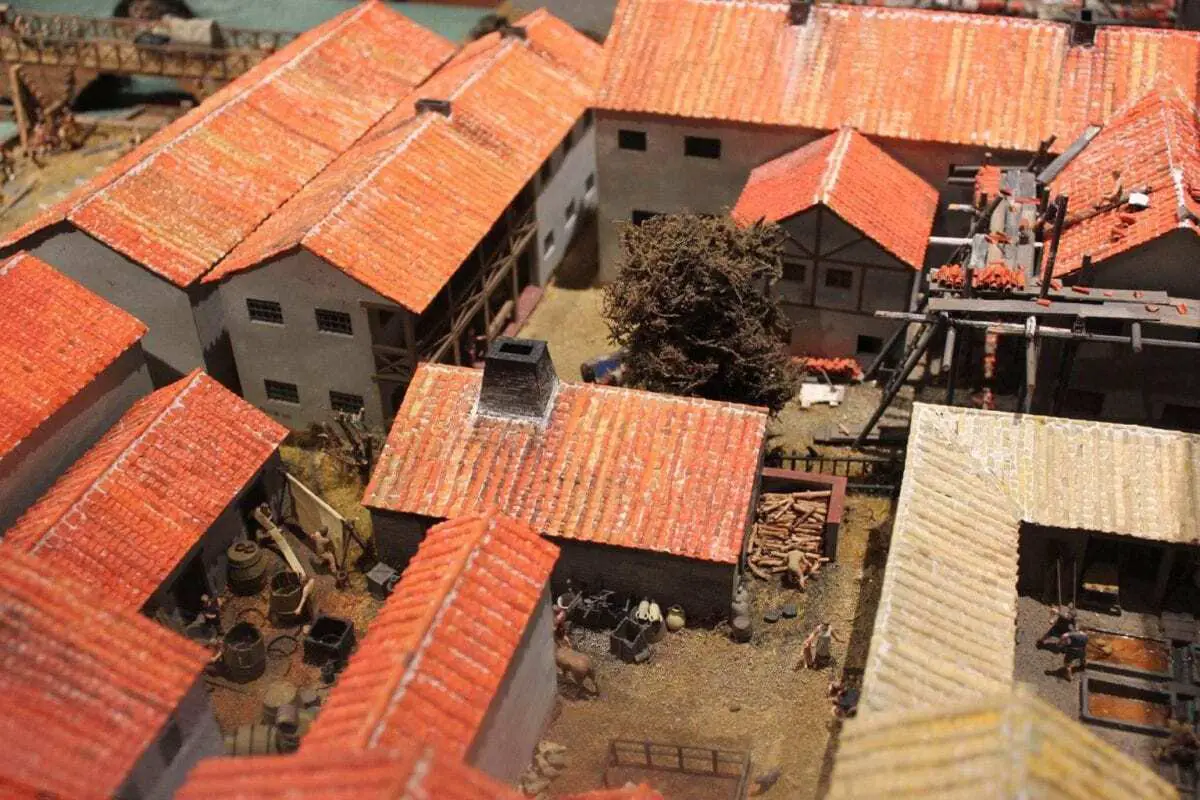Evidence for a temple dedicated to the goddess Isis was revealed by graffiti on a 1st century flagon unearthed in Tooley Street, Southwark which read “LONDINI AD FANVM ISIDIS” – translated as “To London at the temple of Isis”.

Isis is a goddess from the polytheistic pantheon of Egypt. She was first worshiped in Ancient Egyptian religion, and later her worship spread throughout the Roman Empire and the greater Greco-Roman world.
Isis is often depicted as the mother of Horus, the falcon-headed deity associated with king and kingship (although in some traditions Horus’s mother was Hathor). Isis is also known as protector of the dead and goddess of children.
Further evidence to support the temples existence was confirmed by a 3rd century altar, reused in the Roman riverside wall with an inscription that read “the temple had fallen down through old age, had been restored.”
Other small finds in dedication of the goddess in London includes a decorative bone hairpin, lead weights depicting Isis as well as small bronze figurines of the goddess.
Another Egyptian deity who’s influence had reached Roman London was the god Anubis. Excavations in Great Dover Street revealed an unusual cremation burial containing three lamps that depicted the jackal headed god.
To date, London is the only site in Roman Britain to contain evidence of the cult worship of Isis and will remain one of London’s most unusual untold stories waiting to be discovered by archaeologists.





